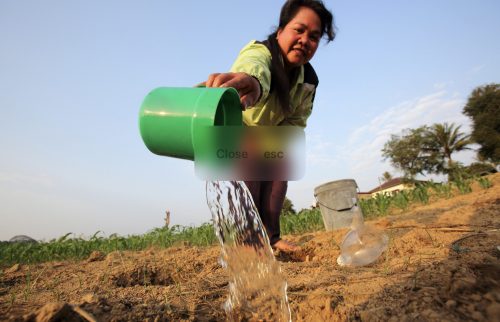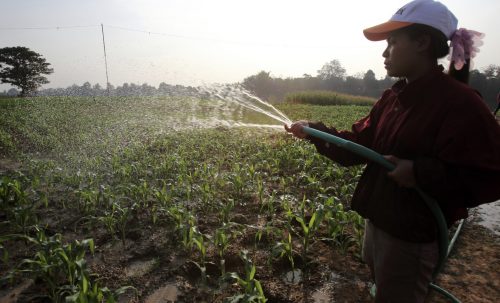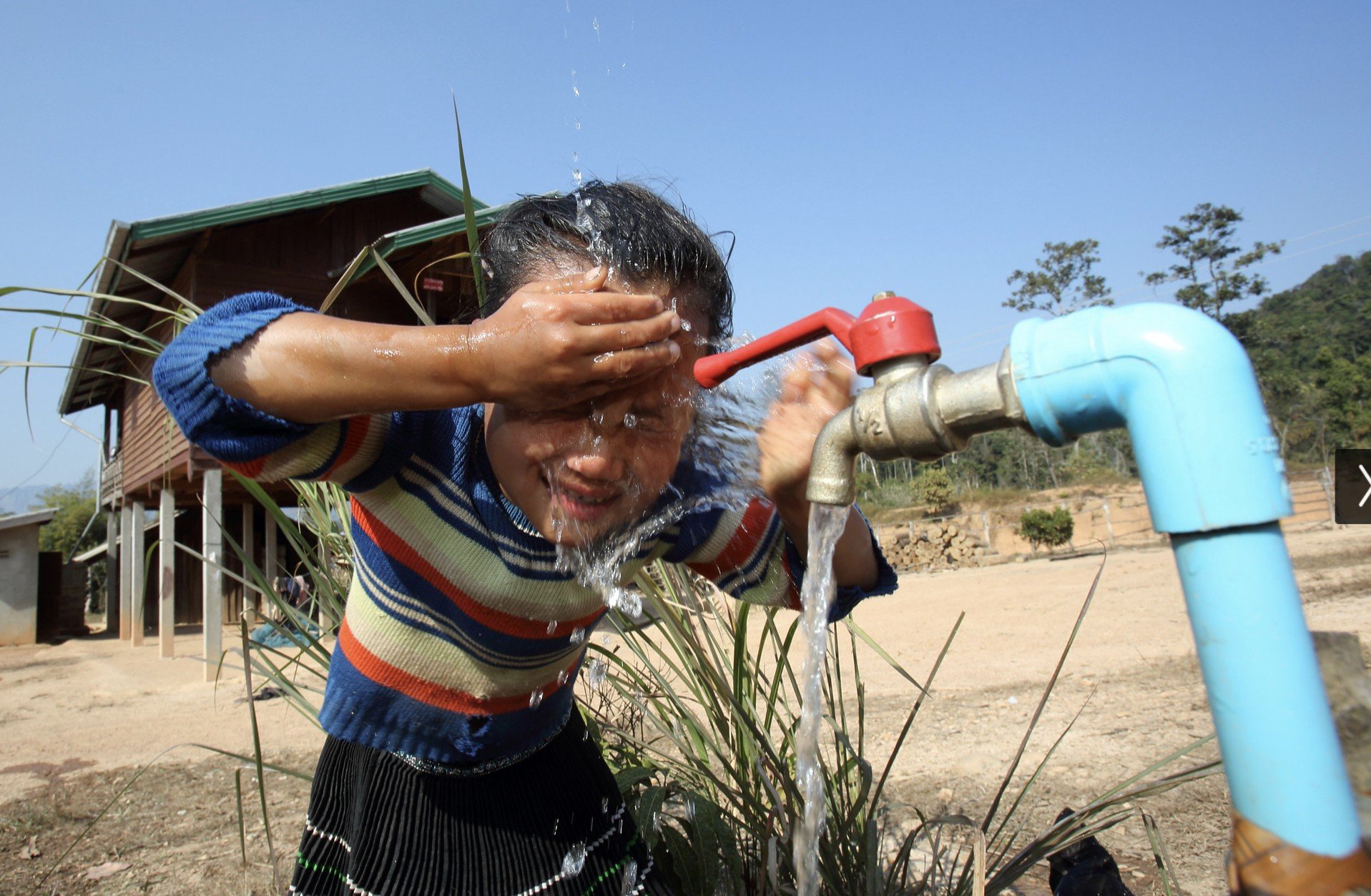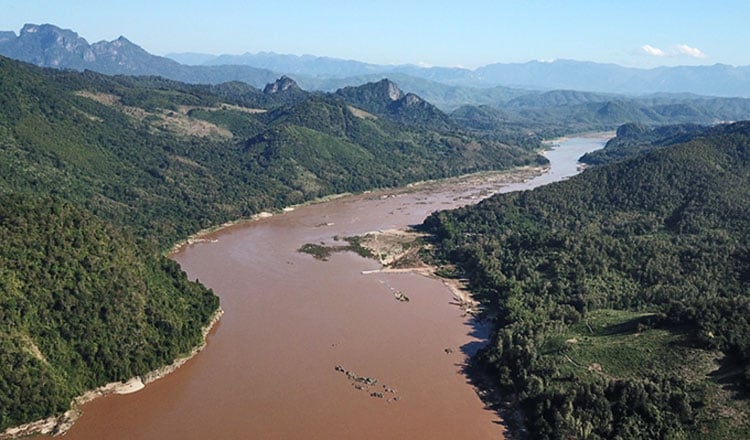Groundwater has an increasingly greater role to play in supporting rural livelihoods and food security in the Mekong region. Climate change impacts, such as unreliable rainfall leading to droughts, and calls for increasing food production, necessitate exploring this often under-used water resource.
But, in many places, the knowledge about and capacity to develop and manage groundwater sustainably is limited. This is the case in Laos, where we have been working with farmers and policy makers to find the best ways for the country and its people to benefit from groundwater.
After several years, this work with local communities has demonstrated that good groundwater management can benefit farmers and society as a whole. Trials have proved that farmers can boost their incomes by using groundwater irrigation to grow cash crops, and with growing recognition, the value of groundwater has been embedded into the national irrigation strategy.
This work holds lessons for other researchers, development officials or policy makers interested in advancing groundwater development for better rural livelihoods elsewhere.

Why groundwater?
When we began our work in 2012, Laos was widely considered to be a water-rich country, considering its small population. Ample rainfall and plentiful rivers delivered water to farmers, fishers and families, and therefore groundwater received little to no attention. But since then, things have changed.
Rainfall is becoming less reliable and drought more common in Laos. Last year, an unusually short monsoon brought much less rain than usual, and a severe drought now prevails across the entire Mekong region. With hotter, less predictable weather becoming increasingly common, tapping into groundwater can help ensure water access all year round, even during droughts.
What’s more, accessing groundwater can support more diversified and more productive agriculture, helping farmers advance from subsistence to market-oriented farming. The Lao government recognizes that irrigated agriculture can help address poverty and support smallholders to adapt to climate change – although the irrigation systems themselves need to be made more resilient to climate hazards and steps must be taken to address risks such as over-exploitation and pollution. Done right, however, installing groundwater wells has the added benefit of boosting rural communities’ access to clean water for personal and sanitation use.
Evidence, capacity, policy
But how to support groundwater development when starting more or less from scratch? Early on, we decided to cover the main elements required for viable, sustainable, profitable groundwater development.
First, evidence. How much and where is good-quality groundwater available, and how much can farmers extract without exhausting this valuable resource? We mapped groundwater resources in water-scarce regions and established recharge rates, finding that farmers could use a lot more groundwater without the risk of exhausting the resource. In addition, field trials showing the benefits of groundwater irrigation as well as surveys highlighting farmers’ keen interest in it – in fact, some were already pumping water from shallow wells – also helped clarify the potential.
Simultaneously, we set out to improve local capacity for groundwater development and management. From the beginning, we worked directly with public offices, including the Lao Department of Water Resources, to collect data and develop plans for groundwater development. In addition, providing opportunities to students and young professionals expanded their knowledge and helped the project benefit from fresh perspectives.
Enabling policy is the final piece of the puzzle. Long-standing engagement with public officials gave us insight into their priorities and made clear what evidence was needed to support the development of good groundwater policies. The first groundwater management plan was piloted on the Vientiane Plain, where considerable research had been carried out, and the plan has since been expanded to several other areas.

Criteria for success
Our project took place during a time when groundwater began receiving attention in Laos. It began to show up in policy documents, and the Lao government started emphasizing that groundwater development could support national priorities, including climate adaptation, food security and market-oriented farming. The alignment with existing national interests is one reason, we believe, the program and its recommendations were well received.
A holistic approach, which responded to national partners’ actual policy and capacity needs, also helped ensure that the project made a difference. We continuously adjusted our project’s trajectory to fit national partners’ needs and stay relevant.
At present, many aspects still need to be explored. For example, efforts to diversify cropping in the country’s drought-prone lowland areas are underway, and will likely be boosted by groundwater development. For the time being, information on the extent and amount of available groundwater is extremely limited in these areas, greatly constraining proper planning. That’s one reason we are launching a new project that will continue to improve knowledge and skills on groundwater.
This in itself points to a final, important lesson: Achieving impacts from research-for-development projects requires a long-term engagement. Groundwater is a resource with great potential for bolstering rural livelihoods in an era of climate change, but it requires investments of time and resources to understand how, where and when to tap into the water stored underground.
Learning from the Lao experience, it is our hope that others can move ahead with groundwater development elsewhere where capacity and knowledge is low, but the need is high. The work was carried out by the International Water Management Institute (IWMI) and its partners under the CGIAR Research Program on Water, Land and Ecosystems (WLE). It received support from the Australian Centre for International Agricultural Research (ACIAR) and from other CGIAR Trust Fund Contributors.
Paul Pavelic (p.pavelic[@]cgiar.org) is a senior hydrogeology researcher at the International Water Management Institute (IWMI) and the CGIAR Research Program on Water, Land and Ecosystems (WLE). Marianne Gadeberg (m.gadeberg[@]cgiar.org) is a communications consultant with WLE.




